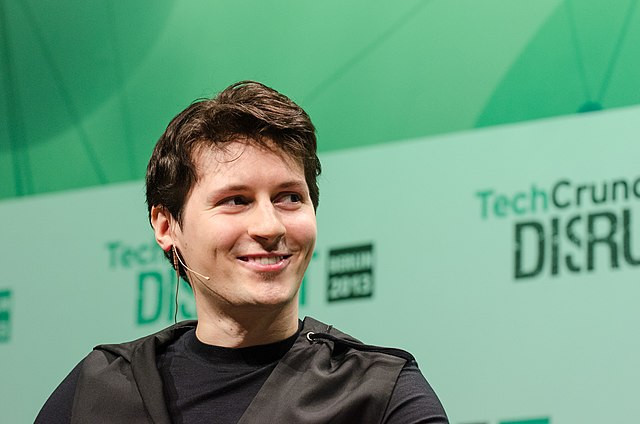President Emmanuel Macron has confirmed his role in granting French citizenship to Pavel Durov, the CEO of Telegram, a decision that has sparked significant controversy and diplomatic tensions. Macron's admission comes days after a presidential spokesperson attributed the decision to the foreign ministry, a statement that has since been retracted.
In a candid acknowledgment during a visit to Belgrade on Thursday, Macron stated, "I gave Mr. Durov French citizenship, who learned French, as I gave to Mr. [Evan] Spiegel, an American entrepreneur, as I gave citizenship to some athletes and artists, and I think this is something that is very good for our country and I will continue to do so." The French President emphasized that the decision, made in 2018, was part of a broader strategy to attract talented individuals from various fields, including sports, arts, and technology.
This revelation comes in the wake of a legal and diplomatic scandal involving Durov. Last weekend, Durov was arrested in France under charges related to his messaging app's alleged facilitation of criminal activities. The arrest has intensified scrutiny over his connections with Russia and the UAE, and has ignited a broader debate on internet freedom and the role of tech platforms in regulating content.
Official records reveal that Durov was granted French citizenship in 2021, a fact that Le Monde highlighted in an investigative report last year. The report questioned the transparency of the citizenship process and whether Durov met the necessary criteria. Macron's acknowledgment has brought renewed attention to these concerns, particularly as the Telegram chief faces serious legal issues in France.
In response to the controversy, Macron has dismissed suggestions that he was planning to meet with Durov or that he had prior knowledge of Durov's travel plans. "I did not call and was not planning on meeting with Mr. Durov, neither at the end of last week nor in the following days," Macron stated, emphasizing the separation of powers in France and the independence of the judiciary. He further clarified that he had no detailed information regarding the investigation, asserting, "We are a country where separation of powers exist and we have rule of law controlled by an independent judiciary."
Durov's arrest has been closely watched by international observers, particularly due to his app's controversial use and his background. Telegram has been criticized for its role in facilitating illicit transactions, including drug trafficking and cyberbullying, as well as its association with far-right groups. Despite these issues, Telegram remains popular in Eastern Europe, where it is frequently used for sharing information from conflict zones.
The Kremlin has responded to the unfolding situation with its own set of clarifications. Kremlin spokesperson Dmitry Peskov firmly denied any official dealings between Durov and Russian President Vladimir Putin. "There were no negotiations between Durov and the Kremlin," Peskov told reporters. He added that, to his knowledge, Putin and Durov had never met. This statement aims to dispel rumors suggesting that the arrest might be politically motivated or influenced by external forces.
Peskov also addressed concerns about the nature of Durov's visit to Russia, noting that as a Russian citizen, Durov had the right to travel freely. Moscow has expressed concern that the case against Durov could be construed as political persecution, a sentiment echoed by some pro-Kremlin figures who have suggested that the U.S. might be involved behind the scenes-a claim Paris has denied.
As the legal proceedings continue, Durov has been released on €5 million bail and is subject to restrictions, including a prohibition on leaving France and mandatory check-ins with the police. His legal team has dismissed the allegations, labeling the notion of his responsibility for crimes committed via Telegram as "absurd."






